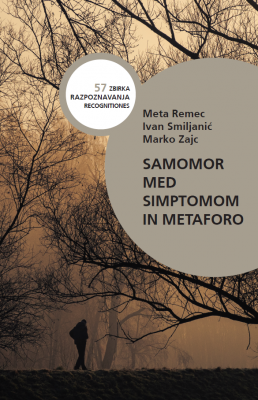Suicide Between Symptom and Metaphore
Keywords:
suicide, SloveniaSynopsis
In the 20th century, the phenomenon of suicide transcended medical and psychiatric explanations and gradually became established as a historical and cultural symptom. Through various discourses – religious, legal, statistical, moral, and ideological – suicide has formed a significant part of the collective consciousness, as its interpretation reflects social tensions, turning points, and transformations of particular historical periods. During the 20th century in the Slovenian territory, suicide transcended personal tragedy: it became a means of political instrumentalisation, cultural introspection, and collective reflection on meaning, identity, and belonging.
The monograph by Ivan Smiljanić, Meta Remec, and Marko Zajc thematises the historical complexity and ideological burden of suicide as a social phenomenon during various periods of the 20th century. Each author draws on a specific historical context – from the inter-war and post-war period, through the Partisan struggle, to late socialism. However, they examine suicide in broader terms: as a phenomenon in which individual distress, the collective emotional atmosphere, discourses of power, and attempts at controlling the meaning of death intersect.

Downloads
Published
Print ISSN
License

This work is licensed under a Creative Commons Attribution-NonCommercial-NoDerivatives 4.0 International License.

